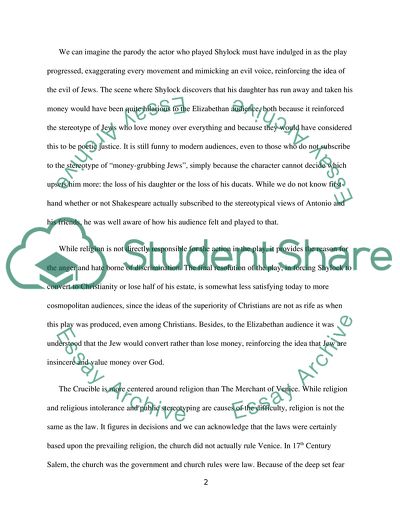Cite this document
(Religious Intolerance and Discrimination in Shakespeare and Miller Essay, n.d.)
Religious Intolerance and Discrimination in Shakespeare and Miller Essay. https://studentshare.org/literature/1722861-merchant-of-venice-the-crucible-the-importance-of-religion-in-society
Religious Intolerance and Discrimination in Shakespeare and Miller Essay. https://studentshare.org/literature/1722861-merchant-of-venice-the-crucible-the-importance-of-religion-in-society
(Religious Intolerance and Discrimination in Shakespeare and Miller Essay)
Religious Intolerance and Discrimination in Shakespeare and Miller Essay. https://studentshare.org/literature/1722861-merchant-of-venice-the-crucible-the-importance-of-religion-in-society.
Religious Intolerance and Discrimination in Shakespeare and Miller Essay. https://studentshare.org/literature/1722861-merchant-of-venice-the-crucible-the-importance-of-religion-in-society.
“Religious Intolerance and Discrimination in Shakespeare and Miller Essay”. https://studentshare.org/literature/1722861-merchant-of-venice-the-crucible-the-importance-of-religion-in-society.


